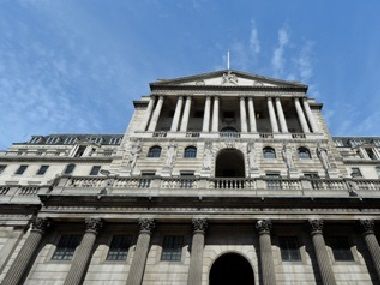Minutes of the bank’s Jan 8-9 policy meeting released on Wednesday showed that officials now expect unemployment to hit 7 percent “materially earlier than previously expected”, as economic recovery has taken hold strongly in Britain.
Back in August the BoE said that it would not raise interest rates until unemployment fell to 7 percent, something it forecast would take at least three years.
But unemployment has since fallen much more sharply than the BoE expected back, and in the three months to October it was 7.4 percent. Data for the three months to November - due for release at the same time as the minutes - is expected to show a further fall to 7.3 percent.
Many economists now think 7 percent unemployment could be reached in the next few months - and the BoE’s Monetary Policy Committee were keen to stress that if this happens, they did not intend to raise interest rates straight away.
Expectations of an interest rate rise in the spring of next year had already caused monetary conditions to tighten, as had the strengthening of sterling in recent months, the Bank said.
Inflation has fallen faster than expected in recent months, and in December it hit its 2 percent target for the first time in more than four years.
“Members therefore saw no immediate need to raise Bank Rate even if the 7 percent unemployment threshold were to be reached in the near future,” the minutes said.
“Moreover, it was likely that the headwinds to growth … would persist for some time yet, and that inflationary pressures would remain contained. Consequently when the time did come to raise Bank Rate, it would be appropriate to do so only gradually.”
While the fall in unemployment suggested there was less slack in the economy than thought, there was still a significant amount of spare capacity and looking purely at a headline unemployment rate could be misleading, the BoE said.
The BoE added that there were upside risks to its forecast that Britain’s economy would grow by just under 1 percent a quarter in the last three months of 2013 and the first three months of 2014.
On Tuesday the International Monetary Fund raised its forecast for 2014 growth to 2.4 percent from 1.9 percent, the biggest upward revision for any advanced economy. The BoE forecast 2.8 percent growth in November.
(Reporting by David Milliken and Michael Holden)
